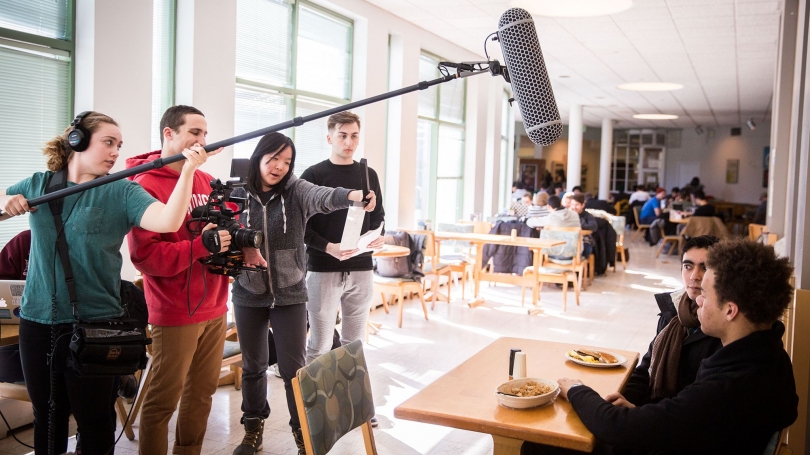
- About
- Undergraduate
- Graduate
- Foreign Study
- Research
- News & Events
- People
Back to Top Nav
Back to Top Nav
Back to Top Nav
Back to Top Nav
Back to Top Nav
Professor of African and African American Studies
Jesse Weaver Shipley is an ethnographer, filmmaker, and artist. His work explores the links between aesthetics and politics by focusing on performances and popular cultures in the midst of changing economic regimes and forms of sovereignty. He has conducted field research in Ghana, Nigeria, South Africa, Britain, and the United States focusing on the complex realities of urban life, labor, race, gender, mobility, and new media technologies. He is the author of two books Living the Hiplife: Celebrity and Entrepreneurship in Ghanaian Popular Music and Trickster Theatre: The Poetics of Freedom in Urban Africa. His writings appear in journals including Public Culture, American Ethnologist, Journal of Popular Music Studies, American Anthropologist, Cultural Anthropology, and Social Text. He has contributed to africasacountry.com, Chimurenga, and thehill.com. His film work includes feature documentaries Living the Hiplife: Musical Life in the Streets of Accra and Is It Sweet? Tales of an African Superstar in New York; multi-channel video installations Black Star and High Tea; and (in collaboration with Khadija von Zinnenburg Carroll) the multimedia installation Investigated. He is currently working on a book on political aesthetics and another on the relationship between parody and violence.
Prof. Shipley will be teaching in summer term 2018:
ANTH 50.21 - Visual Culture (CULT)
ANTH 50.22 - Sovereignty, Race, and Rights (CULT)
ANTH 50.21 Visual Culture
Visual Culture is a film production course, films will be made by students. It examines visual art, sound, film, and digital media. We will learn how to think about and make sounds and images in historically and ethnographically rich ways. In the process we examine notions of power, difference, history, culture, race, class, gender. Twentieth-century politics and culture were intimately linked to the rapid development of radio, television, film, video, and digital media. These media have creatively engaged with local cultural practices around the world in reshaping the nature of artistic expression, national, gendered, and racial difference, and political power. This course explores the politics and pragmatics of art, photography, and film in order to delineate visual and embodied ways of presenting and experiencing the world particularly in relation to race and gender. This is a film production course, films will be made by students.
ANTH 50.22 Sovereignty, Race, and Rights
This course examines the colonial legacies of rights, race, gender, and difference and their significance for contemporary global politics and development. By taking a socio-historical approach to the idea of rights we will make connections between sovereignty, the rule of law, representational practices, economy, and citizenship. We will use a critical eye to explore the conditions of possibility that allow states, development organizations, donor agencies, and individuals to unwittingly reproduce centuries-old tropes of poverty, degradation, and helplessness of non-Western peoples. Examining various institutionally structured encounters between Europeans and non-Western peoples we unpack assumptions about the naturalness of power. In postcolonial societies the tensions between ideas of tradition and modernity structure many conflicts over rights, citizenship, and the role of the individual in society.